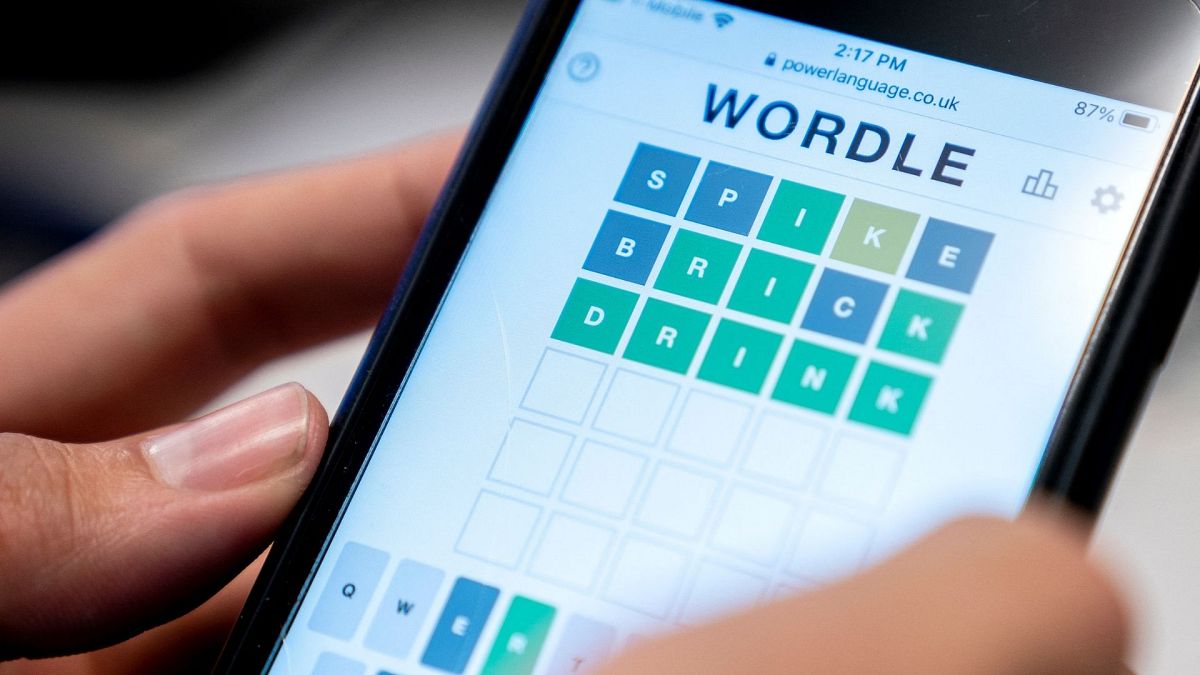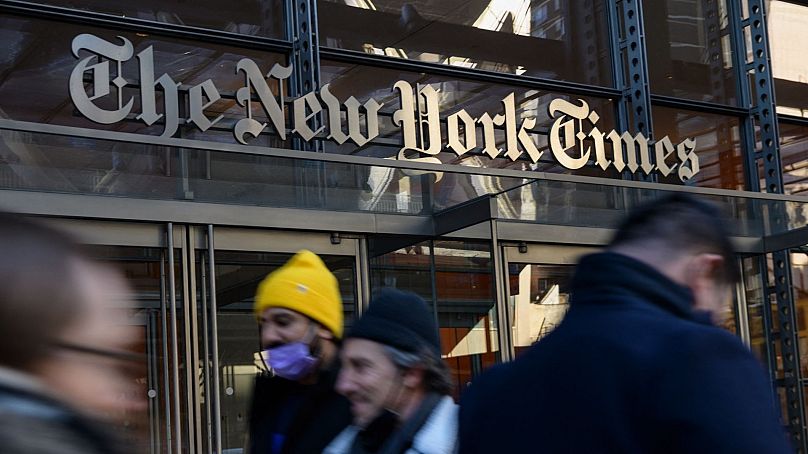The New York Times' purchase of the viral word game on 31 January has lead to questions about how it is changing. Daily users say the answers are definitely more obscure.
When was the last time you can remember an online game erupting at the same velocity as Wordle?
Following the site's purchase by the New York Times, fans say it is changing for the worse.
The media group added the software to its successful portfolio of games for an undisclosed seven-figure sum on 31 January.
One fortnight later, daily users claim the platform's answers are getting increasingly difficult since it found a new home.
A perfect antidote to our collective winter blues, the game's simplicity but quick, rewarding gameplay has had millions hooked since 2021 came to a close.
Has that sale put Wordle's uncomplicated bliss at risk? The truth is a little harder to spell out.
Disappointed players gather on social media
Like all games, Wordle operates on an algorithm. Each day's answer is lined up from a bank of random five-letter words.
Though the interface is no different, it is clear is that A) the game's most engaged audience are disillusioned with what they're seeing and B) the bank of words has actually been modified, for reasons we'll go into later.
Daily players have been especially vocal about their distaste towards some of the game's new outcomes on Twitter.
Months on, the platform still trends there almost every day due to the sheer volume of people sharing their guesses and streaks.
Twitter has been known to ban accounts for hacking the algorithm and prematurely leaking Wordle's answers ahead of schedule.
The company entered sticky territory when they confirmed the removal of words from Worlde inventor Josh Wardle list of eligible guesses for being inappropriate.
Along with "pussy" and "slave", obscure scientific and historical words like "pupal" and "agora" are also absent.
Jordan Cohen, the media group's Director of Communications, says they are "updating the word list over time and removing obscure words in an effort to keep the puzzle accessible to more people, as well as hurtful or rude words".
The notion of removing potentially offensive words isn't an issue for most.
However, given that the New York Times has owned Wordle for less than a month, concerns remain this is an indication that there are other background adjustments taking place.
These aren't limited to its content – the Times' say they plan to keep Wordle away from paywalls and advertising "for now". It is isn't enough reassurance the bulk of its audience that they are experiencing an ugly metamorphosis.
No company spends millions of dollars on an idea without the vision to eventually double that.
A problem within a problem?
The difficulty of each day's correct guess varies and is hard to quantify. More time is required to truly know what the New York Times' intentions for the game involve. Even then, it's all subjective.
Running lists of the game's past solutions are ongoing to decipher what could be happening.
Early January's answers ranged from the straightforward ("drink", "panic", "point") to the infuriating – anybody with "truss" on their go-to list of guesses on 3 January found themselves in a distinct minority.
Others argue in defence of the site's unpredictability. Hold your horses, they say – the original Wordle wasn't always a walk in the park. Remember "knoll"?
Needless to say, a lot of people's streaks were ruined that day.
Any hints of dubious content under this new ownership invites speculation that the game is transforming.
Into what, exactly? Something that doesn't hold the same wholesome engagement of its original form appears to be the biggest fear on the table.
The New York Times added fuel to the fire on 16 February when the answer for the day was "caulk" – the process of filling the gaps "around the edge of something, for example a bath or shower", according the Cambridge English Dictionary.
"At this point the New York Times is just making up words," wrote one dissatisfied player on Twitter.
Befitting with the nature of the game, most people withhold their anger until enough time has passed for people around the world to play.
It's worth remembering that a number of answers since 31 January have been commonplace with what is expected from the game.
Nobody took issue with "pause", "frame" and "skill", for example.
Josh Wardle, the game's creator, is said to have included enough answers to for his wife, Wordle's original audience, to play until 2027.
"Looking at that script, the words that were encoded into the script before any of us ever actually played Wordle are the ones that we've been struggling with over the recent days," writes Daniel Van Boom, a senior reporter for CNET specialising in tech.
"To be clear, The New York Times absolutely can make changes to the script so as to make Wordle harder or easier -- but the script linked above shows that the publication hasn't done so yet."
Whether the New York Times continues to honour that list is a guessing game.




